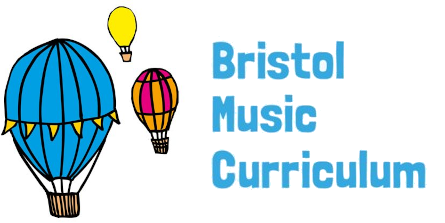Key Learning Objectives: To make predictions about how a song will sound based on the lyrics. To add in percussion or sound effects appropriate to the mood of a song. To sing and perform a song with accurate intonation. Starter activity: Using the provided summary video, introduce Shakespeare’s most notorious play ‘Macbeth’. Discuss why pupils think […]
Tag: Chronology
Year 6, Unit 3: Chronology – Lesson 5
Key Learning Objectives: To identify a number of features of 20th century/modern music. To compare features of music from two different historical periods. Starter activity: Introduce the pupils to modern/20th century music, using the provided Classic FM video. Discuss how this genre is seen to be a ‘break from the past’, highlighting key features and styles […]
Year 6, Unit 3: Chronology – Lesson 4
Key Learning Objectives: To listen to incidental music written for Shakespeare’s play ‘The Tempest’ and identify Nationalistic features. To identify how a composer uses instruments to create an effect or paint a picture in the music. Starter activity: Listening and response exercise based on the provided video. Play the sound only from the video, encouraging the pupils […]
Year 6, Unit 3: Chronology – Lesson 3
Key Learning Objectives: To identify the key features of the Romantic music. To compare music from the same era and identify similarities. To explain how music can create a mood in terms of instruments, dynamics and texture. Starter activity: Introduce the music of the Romantic Period to the pupils by playing ‘Dance of the Knights’ by […]
Year 6, Unit 3: Chronology – Lesson 2
Key Learning Objectives: To recognise Baroque instruments. To identify Baroque decoration (ornamentation) in a given musical example. Starter activity: Listening and response exercise based on the work ‘The Fairy Queen’ by Purcell. Focus on identifying the instrumentation, in particular the harpsichord. Main activity: Listen to the provided clip, a good example of a Baroque da capo […]
Year 6, Unit 3: Chronology – Lesson 1
Key Learning Objectives: To identify some instruments from the Renaissance period. To learn to sing a song from the Renaissance period. To identify some features of a Madrigal. Starter activity: Listening and response exercise based on the work ‘Sing we and Chant it’ by the English composer Thomas Morley, as an introduction to the Renaissance […]
Year 4, Unit 3: Chronology – Lesson 6
Key Learning Objectives: To explore minimalism through a variety of media, manipulating sounds and media. To compose / notate / perform a minimalist composition. Starter activity: Listening and response exercise, based on the work ‘Changes’ by the contemporary Bristol composer John Pitts. Create a shifting pattern of actions, choosing five actions, repeating them until a good […]
Year 4, Unit 3: Chronology – Lesson 5
Key Learning Objectives: To respond to a piece of music with creative writing. To recognise changes in dynamics within a piece of music. To identify how a composer can orchestrate a simple theme in a variety of ways to create varying effects Listening focus: Listening and response exercise, based on the work ‘Firebird’ by the Russian […]
Year 4, Unit 3: Chronology – Lesson 4
Key Learning Objectives: To respond creatively to a piece of music. To suggest words to describe the mood of a piece of music, considering how the composer may have wanted the listener to feel. To identify instruments and to consider how their timbre suggests tone colours. Listening focus: Listening and response exercise, based on the […]
Year 4, Unit 3: Chronology – Lesson 3
Key Learning Objectives: To follow a graphic score To know that staccato means detached. To recognise repeated rhythmic patterns. To compose and perform melodic phrases. Listening focus: Listening and response exercise, based on the work ‘Fossils’ by Camille Saint-Saëns, the twelfth movement of the musical suite ‘Carnival of the Animals’. Main activity: Focus on the rhythm of the main theme, noticing […]
